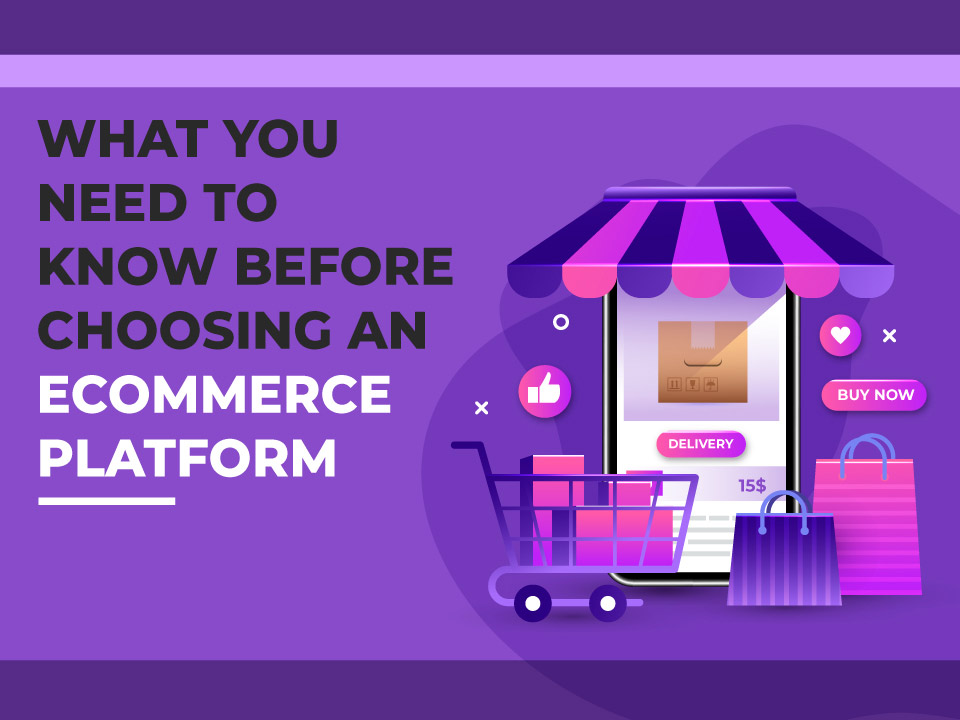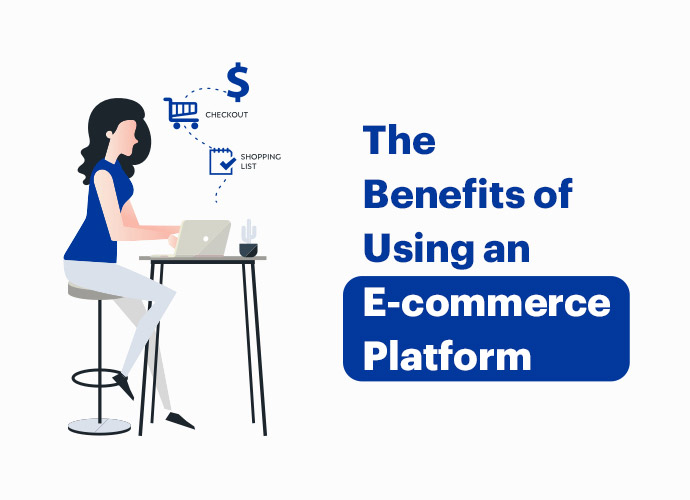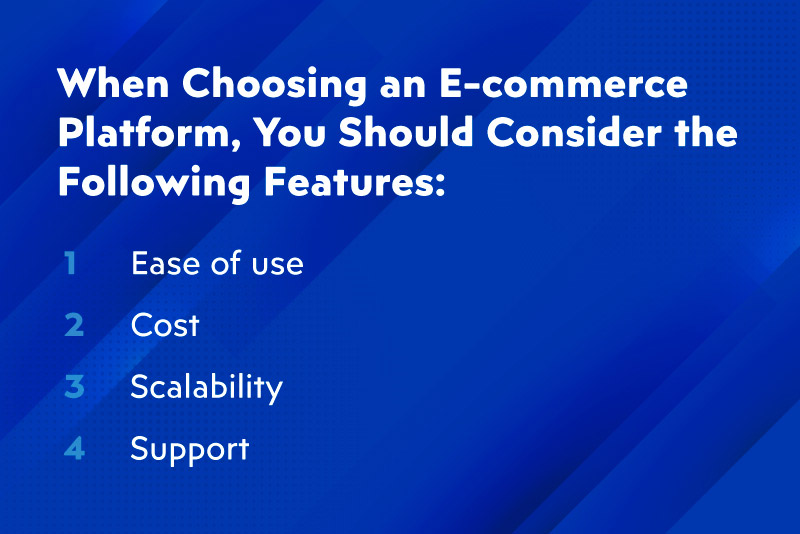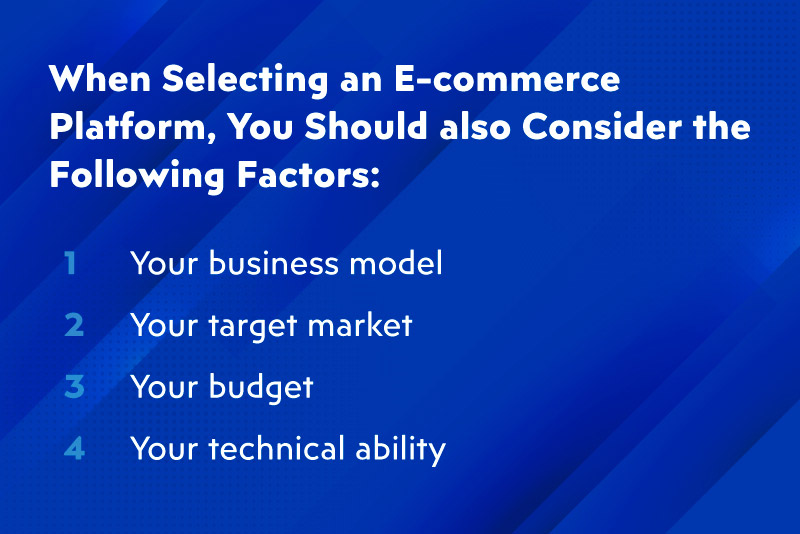
What You Need to Know Before Choosing an Ecommerce Platform
Choosing an e-commerce platform is a big decision for any business. There are many factors to consider, such as cost, features, scalability, and support. It’s essential to do your research and select the right platform for your business.
This article will give you an overview of what you need to know before choosing an e-commerce platform. We’ll cover the different types of features to look for and the things to consider when making your decision.
E-commerce platforms come in a variety of shapes and sizes. There are platforms for small businesses, enterprise businesses, and everything. The platform you choose should be based on your business needs.
There are two main types of e-commerce platforms: hosted and self-hosted. Hosted platforms are provided by a third-party and are typically easy to set up and use. Self-hosted platforms require you to host the forum yourself, which can be more complex.
The Benefits of Using an E-commerce Platform

Ecommerce platforms provide businesses with a means of selling their products and services online. There are many benefits to using an e-commerce platform, including the ability to reach a global audience, tade 24/7, and track sales and customer data.
Ecommerce platforms also provide businesses with a cost-effective way to set up and maintain an online presence. In addition, e-commerce platforms offer several features that can help companies automate their operations and improve efficiency. For example, many e-commerce platforms include built-in inventory management systems and shipping calculators.
As a result, businesses that use e-commerce platforms can benefit from increased sales, lower costs, and improved customer service.

Ease of Use:
When choosing an e-commerce platform, there are several important factors to consider. Ease of use should be at the top of your list; after all, you don’t want to spend hours figuring out how to set up your store or add products. Look for a platform that offers a simple, user-friendly interface.
Another essential consideration is payment processing; you’ll need to ensure that the platform you choose can accept payments from major credit cards and PayPal. Security is also critical; look for a secure checkout and data encryption platform.
Finally, ensure that your chosen platform can scale as your business grows. With these factors in mind, you’ll be able to select an e-commerce platform that’s right for your business.
Cost:
Cost is always an important consideration when choosing any platform, and e-commerce platforms are no different. You’ll need to consider both the upfront cost of the medium itself and the ongoing costs of hosting, maintenance, and support.
Be sure to get a pricing breakdown from each vendor to compare apples to apples. In addition to cost, you’ll also want to consider each platform’s features and functionality. Ensure that the venue you choose has all the features and tools you need to run your business effectively.
Finally, read reviews from other users before making your final decision. By taking all of these factors into account, you can be sure that you choose the right e-commerce platform for your business.
Scalability:
Scalability is one of the essential features to consider when choosing an e-commerce platform. As your business grows, you’ll need a platform to accommodate increased traffic and transactions.
Otherwise, your site will become sluggish and unreliable, leading to lost sales and frustrated customers. Furthermore, a scalable platform will give you the flexibility to add new features and products as your business evolves.
To ensure Scalability, look for a platform that uses microservices architecture and offers flexible APIs. With this Scalability, your eCommerce shop will have room to grow along with your business.
Support:
When setting up an online store, choosing an e-commerce platform with all the features you need to run your business smoothly is essential. Support is one of the most critical considerations since you’ll want to be able to rely on your platform for help with technical issues, as well as any questions you may have about using the software.
Other essential features include a customizable product catalog, powerful search and filtering capabilities, and integration with third-party shipping and payment providers. By taking the time to find a platform that offers all the features you need, you’ll be able to set up and run your e-commerce business confidently.
Read more about WHICH SOCIAL MEDIA CHANNELS WILL BRING YOUR BUSINESS THE MOST ROI?

Your Business Model:
The platform you choose should be compatible with your business model. For example, if you plan to sell digital products, you should choose a platform that supports digital downloads.
Your Target Market:
The platform you choose should be able to reach your target market. For example, if you sell products to businesses, you should choose a platform that has a B2B focus.
Your Budget:
The platform you choose should fit into your budget. You should consider the cost of the platform, the cost of hosting, and the cost of any additional features or plugins.
Your Technical Ability:
The platform you choose should be within your technical ability. If you’re not comfortable with code, you should choose a platform that doesn’t require coding skills.
Conclusion:
When choosing an e-commerce platform, you should consider the cost, scalability, support, and features that each platform offers. You should also consider your business model, target market, and budget. By taking all of these factors into account, you can be sure to choose the right e-commerce platform for your business. Thanks for reading!


